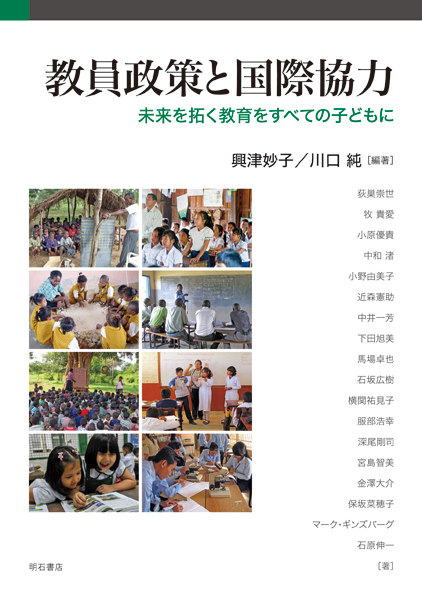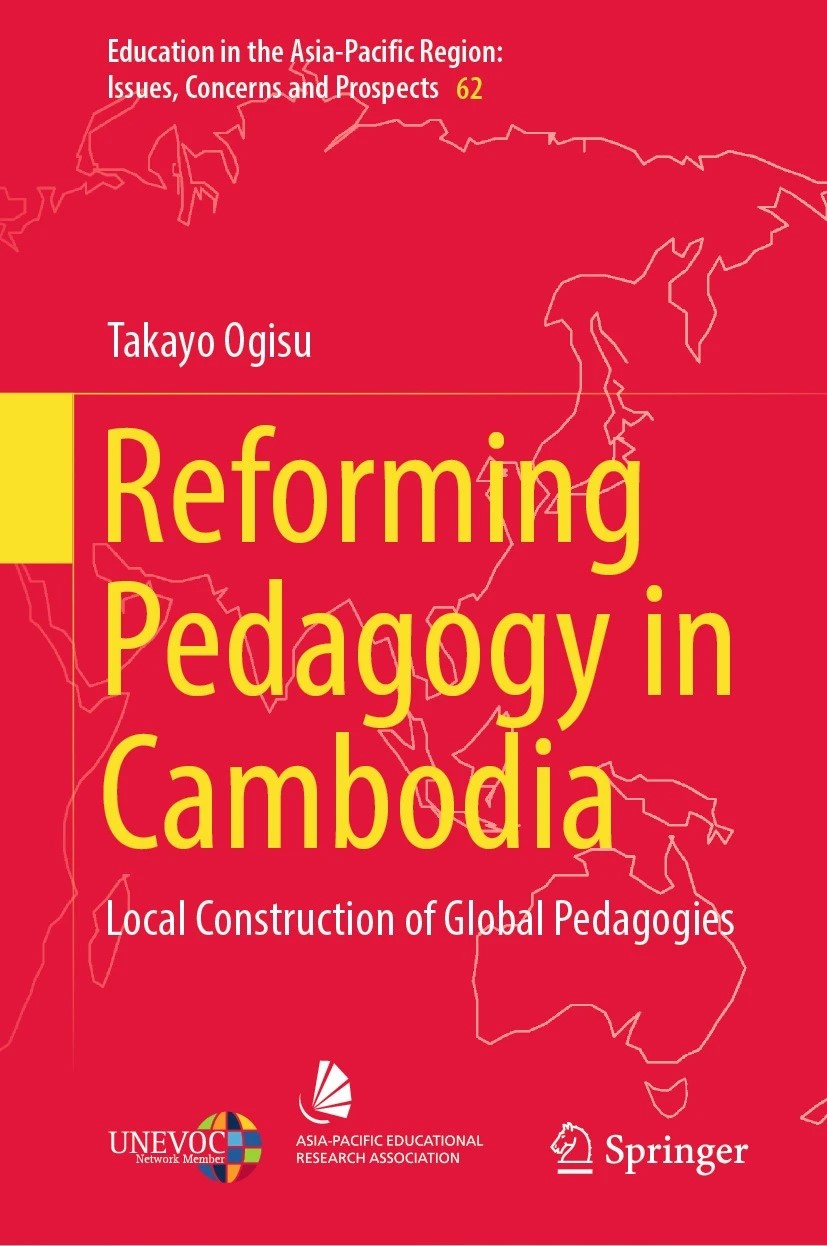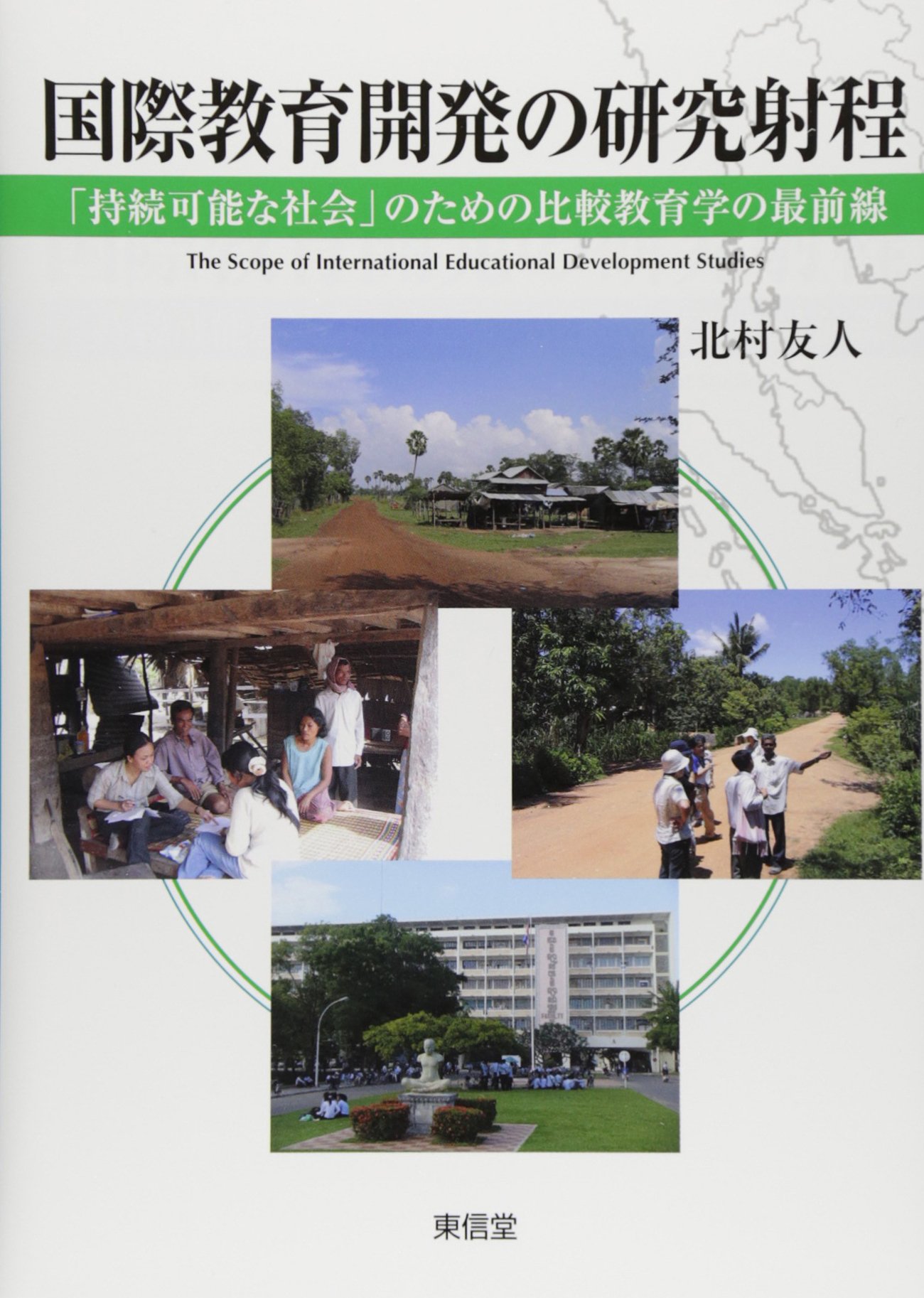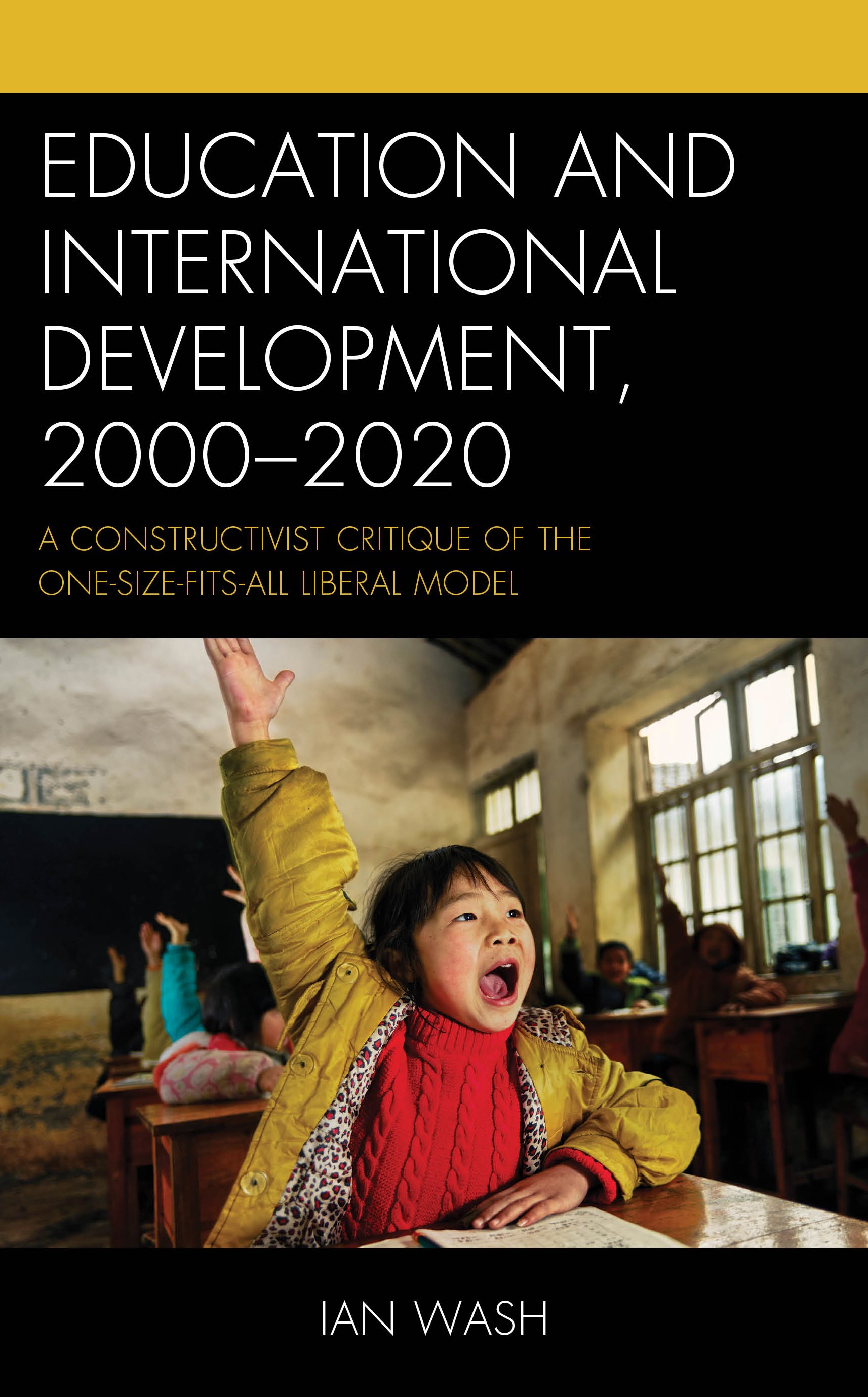
Title
Kyoin-seisaku to kokusai kyoryoku (Teacher Policies and International Cooperation - Mirai wo hiraku kyoiku wo subete no kodomo ni)
Size
368 pages, A5 format
Language
Japanese
Released
November 15, 2018
ISBN
9784750347479
Published by
Akashi Shoten
Book Info
See Book Availability at Library
This book explores the most recent trends in policies related to teachers in various developing countries. It contains analysis of teacher policies in countries from Asia, Africa, and Latin America as well as analysis of cooperation strategies of international cooperation agencies toward teacher-related areas.
Contributors of this book include university-based researchers in the fields of comparative and international education and international educational development, as well as practitioners from various international cooperation agencies such as JICA, UNESCO, UNICEF, etc., all very active in helping teachers and advancing support systems for teachers around the world.
Aside from its range of contributors, uniqueness of this book lies in examining both country specific policy trends in teacher-related fields and global trends in international cooperation on teachers, from which local policies have strongly been influenced. Dynamic interplay between global and local can be traced as you proceed from one chapter to another.
The book is divided into two parts.
Part One presents case studies ranging from Cambodia and Thailand to India, and Malawi, South Africa, Zambia to Bolivia. Issues such as teacher professionalization, teacher education, teacher evaluation, and standards will be discussed in each specific context. By reading these case studies, you can get an idea of the extent to which teacher-related polices are becoming similar in various places in the world, and at the same time, you will see how uniquely each country accepts/rejects some globalized policies.
In Part Two, you will be introduced to the strategies various international cooperation agencies, World Bank, UNESCO, UNICEF, GPE, USAID, and JICA, more specifically, take in teacher-related areas. Each agency has its own reason(s) to support teachers and teacher-related fields and these rationales affect how actual cooperation projects/programs are planned and implemented. Chapters in Part Two will help you understand how powerful these international agencies are in shaping global policy trends.
This is a must read not only for those who major in international cooperation, but also for those who wish to engage in education in developing countries as volunteers, and even for those who are becoming teachers in Japan.
(Written by OGISU Takayo, Assistant Professor, Graduate School of Education / 2019)



 Find a book
Find a book




